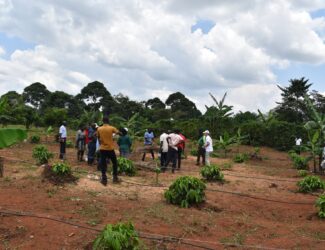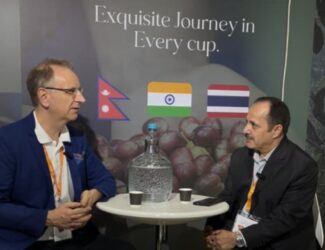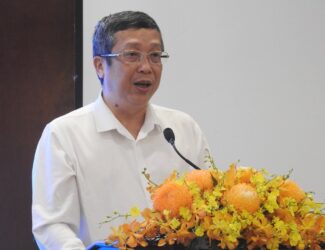
How Cooxupé Is Embedding Circularity Across Brazil’s Largest Coffee Cooperative
Dubai – August 2, 2025 (Qahwa World) –At the 21st session of the Circular Economy Working Group in Coffee, Natalia Fernandes Carr, ESG Manager at Cooxupé, presented an overview of how Latin America’s largest coffee cooperative is integrating circular economy and sustainability principles across its operations.
Speaking alongside representatives from Kenya and Brazil, Carr highlighted Cooxupé’s holistic approach to environmental, social, and governance (ESG) practices — from regenerative agriculture and waste reuse to farmer training and ecosystem preservation.
Founded in 1932, Cooxupé (Cooperativa Regional de Cafeicultores em Guaxupé) represents thousands of smallholder coffee farmers across multiple Brazilian states. In recent years, the cooperative has expanded its sustainability commitments to include climate adaptation, reduced dependency on chemical inputs, and a full embrace of circular economy practices at the farm level.
During the session, Carr emphasized several key strategies being implemented:
-
Supporting farmers in adopting bio-inputs and reducing reliance on synthetic fertilizers and pesticides
-
Promoting reuse of coffee husks and spent grounds as mulch and compost within farm systems
-
Investing in on-farm training programs for regenerative agriculture and climate-smart land use
-
Integrating monitoring tools to track environmental performance (water use, soil quality, biodiversity)
-
Collaborating with public and private partners to fund and scale sustainable initiatives
She explained that circularity at Cooxupé is not treated as a side project or marketing tool — it is embedded into the cooperative’s core business model, with a focus on long-term resilience and shared value creation.
“We view sustainability not as a cost, but as an opportunity to create stronger farms, healthier ecosystems, and better markets,” said Carr.
The cooperative also plays a key role in data collection and reporting, supporting ESG transparency across its supply chain, and helping member farmers comply with growing sustainability regulations and export requirements.
Carr’s remarks came as part of a broader Working Group session hosted by the Center for Circular Economy in Coffee (C4CEC), in coordination with the Coffee Guide Network and the International Trade Centre (ITC). The July 2025 session focused on regenerative agriculture and circular innovation across producing countries, with Cooxupé’s example serving as a model of how cooperative infrastructure can scale climate action.






